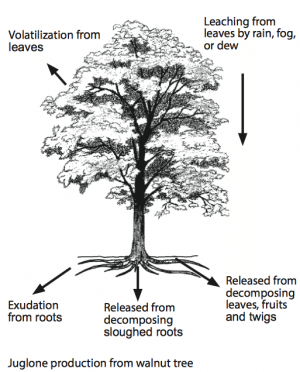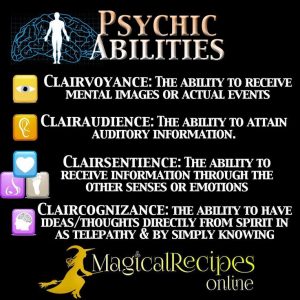 Check your premises… if the worldview is at odds with reality, your vibration will be low… 1 or what does truth value have to do with your worldview?
Check your premises… if the worldview is at odds with reality, your vibration will be low… 1 or what does truth value have to do with your worldview?
There are lots of good books, good talks, good emails, good articles floating around. Really.
What they share, what is in common with all of those is that their truth value is low. Tai’s excellent email from today on toughening up has a 20% truth value.
You get a stomach ache from the thought that what you have been reading, studying as the truth has such low truth value. Good book, good article, good whatever… low truth value?
What the f… is it about?
 Even if everything is true in the piece, the truth value of same can be low.
Even if everything is true in the piece, the truth value of same can be low.
Now you have a headache in addition to the stomach ache… WTF? lol
How can that be true?
If what is in the invisible, if what is in the unsaid is not true, even if everything in the visible is true, the whole truth value will be low.
OK, let me distinguish what is the invisible, what is the unsaid…
Yesterday I had a conversation with a philosophy student who once was my student, and is visiting now from time to time.
So the conversation was, for the most part, about how to get good at being a philosophy student, what philosophers are like, and thinking… what is the job of a philosopher.
And, in the end, the famous Aristotle/Ayn Rand/Objectivism phrase: Check your premises.
If you are a normal human, you never ever go there. You assume that the premise is sound, the premise is true. Which pretty much means: a normal human assumes stuff and is wrong 99% of the time.
The premises are invisible to you… unless you dig.
 Just like with a tree: you have to dig down deep to see what is feeding the tree.
Just like with a tree: you have to dig down deep to see what is feeding the tree.
Example: you see a beautiful tree bearing beautiful apples… but all the apples are toxic. The toxicity comes from the invisible…
You read an article that makes so much sense, except you cannot do any of the simple things it say, or even if you can, they just don’t produce the result that is promised and expected.
The article is the tree… it is fed by a toxic idea, notion, worldview, that makes the article toxic.
When your premises are toxic, you’ll argue.
In the Baroque Cycle, a book I just re-read, Leibniz and Isaac Newton argue. Their argument cannot be reconciled. Why? Because both of their theories grew out of a toxic set of premises. So they can argue, but cannot resolve the conflict…
Every philosophy, every psychological discovery or theory, maybe even every theory on biology, money, economy, etc. is laid on false premises.
A theory that grew on false premises will be the toxic tree with the toxic apples.
The truth value of my theory is 70%. Still low, but less toxic than most. The average truth value of the theories today is 8%.
 One must have access to the invisible, and one must not care how one looks to increase the truth value.
One must have access to the invisible, and one must not care how one looks to increase the truth value.
—>One advantage I have is that I am a true empath, so what people see doesn’t detract me from what they are not saying. For decades I was really bothered by it. 2
 When you are bothered by anything, you are self-righteous… so not available to see.
When you are bothered by anything, you are self-righteous… so not available to see.
—>The other advantage is that I am eclectic and a polymath. And shameless. And that I will attempt to go to the root or source of things, if I can.
It is one thing to read about… it is another thing to read “it”.
So when I went to read Aristotle himself, I had an experience much like when someone blind suddenly starts to see.
 I saw, for the first time, how people decide what is in the invisible.
I saw, for the first time, how people decide what is in the invisible.
Because you have to admit: if no one told you what is the organ of thinking, you wouldn’t know. And even if you managed to cut open bodies, you wouldn’t think it’s the brain. You would think it’s the heart… because the blood vessels are visible, while the nerves aren’t… not really.
Aristotle lived two and a half centuries ago. His writing reflected the “premises” of the day.
He said some brilliant things. 3
But from the truth’s point of view, what we are trying to get to is his work in logic and syllogism. If you don’t know what these are, you don’t need to worry, it won’t be necessary, I think.
The essence is that if anything you base upon a statement is not true, then your statement is not true. 4
Ayn Rand created a whole philosophy based on this: Objectivism.
Contradictions do not exist. Whenever you think you are facing a contradiction, check your premises. You will find that one of them is wrong. Ayn Rand
Read more at: https://www.brainyquote.com/quotes/ayn_rand_163204
What you base anything upon is called a premise. If you are religious, one of your premises is that the world was created… as an example.
If you are a medical doctor, one of your premises is that studying disease will help you make people healthy…
I could list a lot of obviously wrong premises here… a disgustingly long list.
These premises are always in the unsaid… that way you don’t even know what they are… they are in the root level of your whole construct of worldview… obvious to you, never considered, never looked at, never questioned.
And all the books and all the articles, even the off-kilter theories are all based on invisible premises that are truly wrong.
As wrong, in fact, as the theory that thinking happens in the heart…
To penetrate the invisible, one needs abilities, it seems, that are beyond the five senses. Extrasensory perception.
One of these is called empathy or Clairsentience, which means clear sensing, is the ability to feel the present, past or future physical and emotional states of others, without the use of the normal five senses. Psychics who are clairsentient are able to retrieve information from houses, public buildings and outside areas. 5
Obviously I am both… What it doesn’t say is that a clairsentient sees within… sees what is invisible for a normal sensory organ to see, even if the thing is cut open.
For example: I can “see” where is the mind and what it is doing. What activates it and what you do when it is active.
Where do you actually do your thinking? If ever…
Most everyone talks about the mind… and the premise is that the mind is the center of thinking, or decision making, and you should control it, hone it, rewire it, blah blah blah.
 And just like doctors with genetics, beat the poor mind to death…
And just like doctors with genetics, beat the poor mind to death…
Hey, you are beating the wrong horse.
Do I know everything? Hell no. I know some stuff, and as you heard, it is an average of 70% truth value. Which means some stuff I know 90%… some stuff lower.
The proof of the pudding is in the eating of it… If it works, then it was probably true. If it doesn’t work for everyone: probably a lot of the truth is unrevealed there…
There is a lot more work to do.
The next True Empath/Clairsentient is 10 years old… (It seems that there is only one alive at any one time. Most of them only suffer from their “gift” and never train themselves to become a force to reckon with.) If I can hang around for another 8-9 years, ugh, there will be an unbroken “chain” of succession…
And in those years I may be able to increase my truth value… especially the premises.
Of course the world won’t be willing to change willingly: when someone has a hammer, all they can see is nails.
- So doctors will probably still be interested in disease… and killing you in the process.
- Teachers will still lie and writers will get famous by writing short pithy popular articles.
New premises require new ways of thinking, and that takes a long time.
My webinar on Sunday cleared up a lot of stuff… but I bet it didn’t change the premises of the people who attended.
Do I know how to do that? Not a clue.
The 45 minute skype call I had with my philosophy student ex-client will be a great test: can he allow the new learning to overtake his premises? I will work with him, just like I’ve worked with some chosen other people to see if something can be changed, if something can be done to alter “carved in stone” worldviews.
All the premises essential to the truth value of ideas, theories, behaviors, teachings, are worldview issues.
Invisible and unconscious.
prem·isenoun
Logic
noun: premise; plural noun: premises; noun: premiss; plural noun: premissesa previous statement or proposition from which another is inferred or follows as a conclusion.
“if the premise is true, then the conclusion must be true”
an assertion or proposition which forms the basis for a work or theory.
“the fundamental premise of the report”
synonyms:proposition, assumption, hypothesis, thesis, presupposition, postulation, postulate, supposition, presumption, surmise, conjecture, speculation, assertion, belief
“the premise that human life consists of a series of choices”verb
verb: premise; 3rd person present: premises; past tense: premised; past participle: premised; gerund or present participle: premisinbase an argument, theory, or undertaking on.
“the reforms were premised on our findings”- I was mainly exposed to this in Landmark Education where “sharing” was how you shone… and what you were sharing, what people were sharing was always at odds with the truth.
But the same is the situation with gurus, marketers, teachers… they say things that are at odds with the truth.
Or my clients that say things. Or the water that isn’t charging… Or the diet they supposedly follow.
I call that lying. But I am finding out that when people are offended, they want to leave.
Offended often means: they got found out. Offended always means: their puffed up public self is cut down a notch.
- We are what we repeatedly do. Excellence, then, is not an act, but a habit.
- The whole is more than the sum of its parts.
- It is the mark of an educated mind to be able to entertain a thought without accepting it.
- The roots of education are bitter, but the fruit is sweet.
- Man is by nature a political animal.
- The law is reason, free from passion.
- What is a friend? A single soul dwelling in two bodies.
- Educating the mind without educating the heart is no education at all.
- Happiness depends upon ourselves.
- Pleasure in the job puts perfection in the work.
We are now in a position to consider Aristotle’s theory of the syllogism. … We can define a syllogism, in relation to its logical form, as an argument made up of three categorical propositions, two premises (which set out the evidence), and a conclusion (that follows logically from the premises).
- I checked some pages on this extrasensory perception ability, and their truth value is 1%… so they are 99% bullshit. Wishful thinking. No clarity… no distinctions… no idea… :-(
